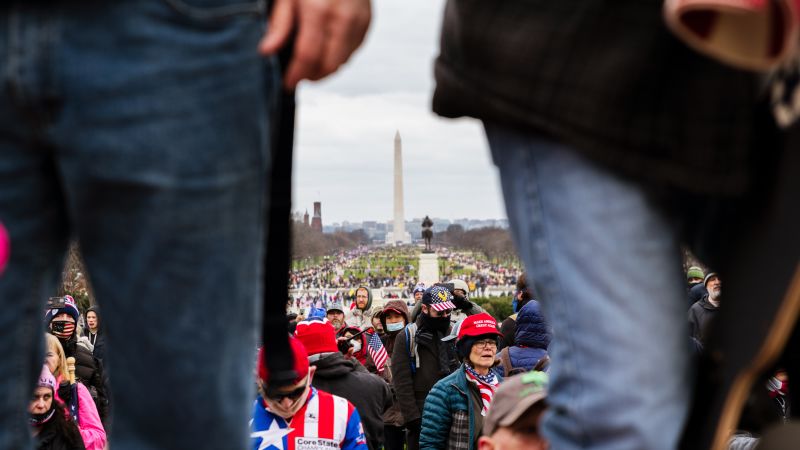The Supreme Court is set to hear arguments from a former Pennsylvania police officer who participated in the January 6 Capitol riot. This case could potentially impact federal charges against over 350 rioters and former President Donald Trump, who faces the same criminal offense. The charge in question can add up to 20 years to a prison sentence and concerns obstructing an “official proceeding.” The court’s decision will determine the interpretation of the law and the validity of convictions already secured.
The stakes are high for Trump, the January 6 defendants, and the Justice Department, as any finding that the charges were improper would be politically damaging. The Supreme Court will hear arguments in Fischer v. US, which is separate from Trump’s ongoing trial on state charges in New York. The charge in question was enacted in response to corporate accounting scandals and is meant to prevent evidence tampering in official proceedings. Prosecutors argue that the charge applies to the January 6 cases, while critics believe it was intended for different scenarios.
Joseph Fischer, the former police officer, is appealing the obstruction charge and contends that his actions on January 6 did not meet the criteria for the offense. Prosecutors claim that Fischer exhibited violent behavior and should be held accountable for his actions. The US Court of Appeals for the DC Circuit ruled in favor of using the charge against January 6 defendants, but the Supreme Court has decided to only hear Fischer’s case. The ruling could have significant implications for other January 6 cases, although most defendants faced additional charges in addition to obstruction.
Progressive groups have called for Justice Clarence Thomas to recuse himself from cases involving January 6 due to his wife’s attendance at Trump’s rally and text messages aimed at supporting the former president. Fischer’s case draws upon a previous Supreme Court decision involving a fisherman caught with undersized fish and provides context for interpreting the law in the January 6 cases. The government and outside experts push back against Fischer’s interpretation, emphasizing the broad prohibition on disrupting congressional proceedings.
The decision in Fischer’s case could impact the validity of other January 6 cases, although the charges faced by most defendants are not solely based on obstruction. Trump could use a win for Fischer to further undermine the Justice Department but may not succeed in having his own obstruction charge dismissed. The special counsel is prepared to argue that Trump’s charges should still stand regardless of the outcome in Fischer’s case. The Supreme Court’s ruling will clarify the application of the law in the context of January 6 and potentially affect future cases involving similar charges.


